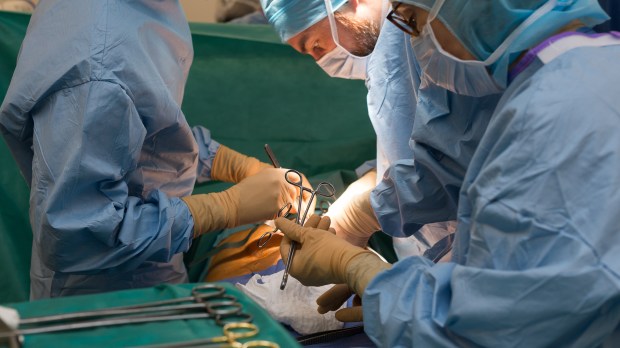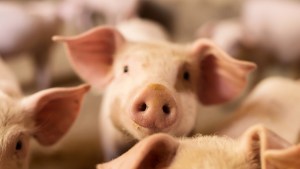Lenten Campaign 2025
This content is free of charge, as are all our articles.
Support us with a donation that is tax-deductible and enable us to continue to reach millions of readers.
Two Catholic bioethicists welcomed news this week that a heart from a genetically modified pig was successfully transplanted into a human patient. The medical breakthrough offers hope for the thousands of people who are waiting on transplant lists.
“We have been transplanting pig heart valves into human patients for decades, so this development of transplanting not just the heart valve but the entire pig organ is not as ethically novel as one may think,” said Fr. Nicanor Pier Giorgio Austriaco, O.P., Professor of Biology and Professor of Theology, and Director of ThomisticEvolution.org at Providence College.
Fr. Austriaco said that 20 years ago, the Pontifical Academy of Life published guidelines on xenotransplantation, approving the procedure as long as certain ethical parameters were observed.
The procedure was carried out Friday in Baltimore, in a last-ditch effort to save the life of a 57-year-old man who was ineligible for a human heart transplant. It occurred just months after doctors attached a pig’s kidney to a brain-dead person’s body and watched it begin to work.
The University of Maryland Medical Center, where the procedure took place, said Monday that the man was doing well. According to the Associated Press, he was breathing on his own while still connected to a heart-lung machine to help his new heart.
The patient, David Bennett, said in a statement provided by the University of Maryland School of Medicine a day before the surgery, “It was either die or do this transplant. I want to live. I know it’s a shot in the dark, but it’s my last choice.”
“If successful, this technology could save the many patients who die every year waiting for a heart transplant from a human donor,” Fr. Austriaco said.
John F. Brehany, Executive Vice President of the National Catholic Bioethics Center, said the transplant “appears to be an encouraging step in medical science and technology that, at the same time, respects ethical boundaries.
“Our faith tells us that humans have been given a limited dominion over animals in the order of creation,” Brehany said. “While the step from using animals as sources of food, labor, and material supplies to using them for functioning organs is unimaginably complex, it is not ethically different.”
Noting that the supply of human organs available for transplant always falls short of the numbers of patients in need, Brehany said that ethically sourced animal organs could help many more human beings to live longer and to function better. “Moreover, it may help to forestall people from resorting to unethical actions, such as loosening the criteria for brain death, to increase the supply of organs,” he told Aleteia.
About a dozen people on wait lists for vital organs die each day.
Long history
Xenotransplantation — using organs, blood and skin from other species – has a long history. Pig heart valves are routinely transplanted into humans, and some patients with diabetes have received porcine pancreas cells, the New York Times explained. Pig skin has also been used as a temporary graft for burn patients.
With organs, there is still a huge hurdle of rejection from patients’ bodies, but gene editing and cloning have helped overcome that hurdle. In the present case, the heart came from a genetically altered pig raised by Revivicor, a regenerative medicine company based in Blacksburg, Virginia. The pig had 10 genetic modifications, the Times said. Four genes were inactivated, including one that encodes a molecule that causes an aggressive human rejection response. A growth gene was also inactivated to prevent the pig’s heart from continuing to grow after it was implanted. And six human genes were inserted into the pig’s genome — modifications designed to make the porcine organs more tolerable to the human immune system.
Several biotech companies are developing pig organs for human transplant.
The Food and Drug Administration, which oversees such experiments, allowed the surgery under what’s called a “compassionate use” emergency authorization, available when a patient with a life-threatening condition has no other options, AP added.
Dr. Bartley Griffith, who performed the surgery, has transplanted pig hearts into about 50 baboons over five years.
Bennett could be taken off the heart-lung bypass machine, which was keeping him alive before the operation, on Tuesday, the Times said. He is being closely monitored for signs that his body is rejecting the new organ, but the first 48 hours, which are critical, passed without incident. He is also being monitored for infections, including porcine retrovirus, a pig virus that may be transmitted to humans, although the risk is considered low.


